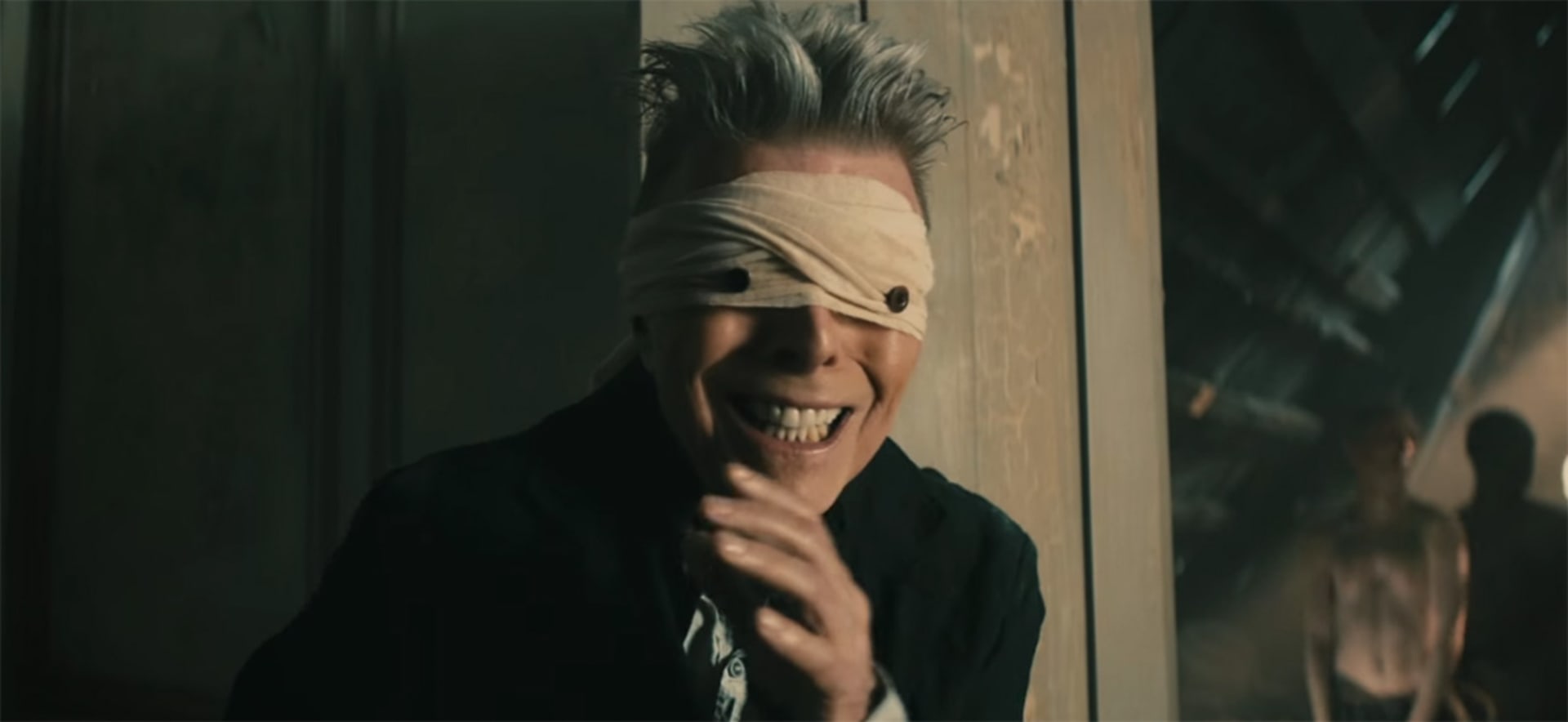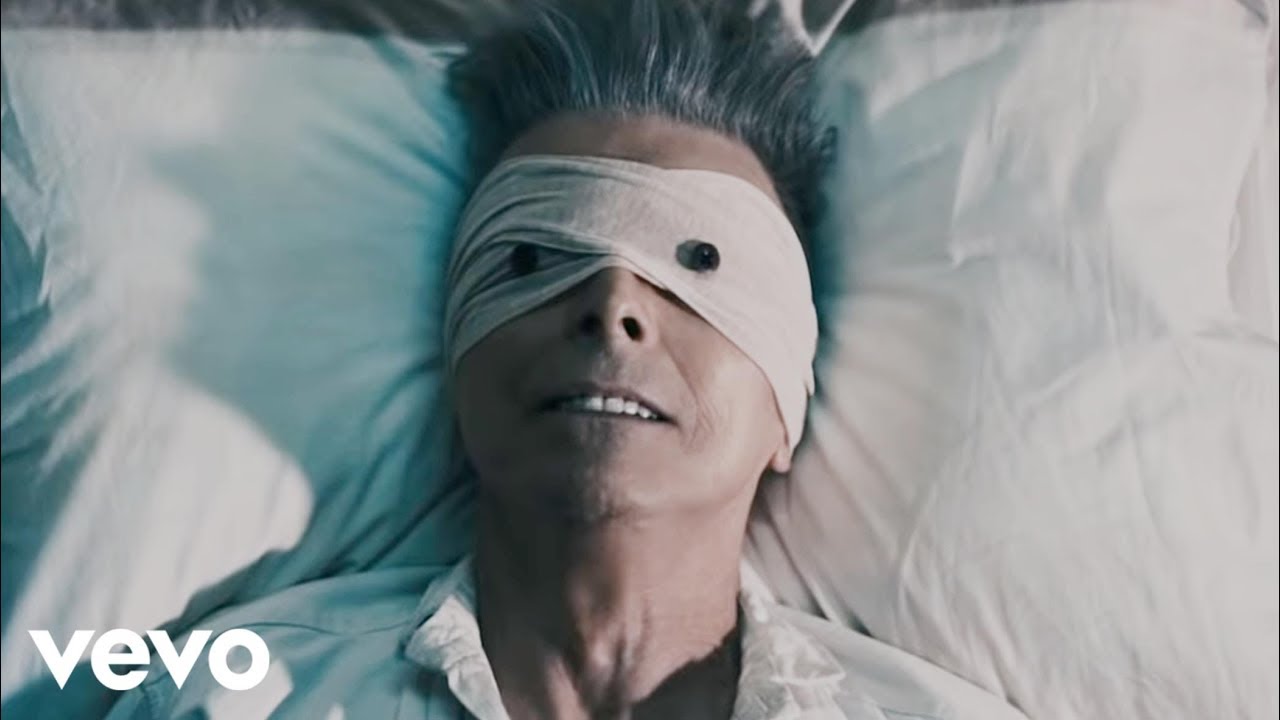
The End Of An Era: David Bowie’s ‘Blackstar’ Reviewed
I’ve loved a lot of David Bowie songs throughout my life.
His landmark albums from the early ‘70s were often played on the radio shows that I recorded to cassettes in the mid-‘70s and beyond. To my ears, his glam anthems and outfits were way ahead of what represented “glam” in the charts. David Bowie was already somewhere else, of course, anticipating the disco phenomenon I would soon love and following it up with the Berlin trilogy that would inspire legions to create something great—and look great while doing it, too.
In the early ‘80s, when I was running around the small coastal town where I grew up in ‘60s clothes, I discovered that Bowie had already had been there in the best way imaginable. His early singles on the label Pye were exactly the attitude and sound I was looking for. He was the definite face. He made no mistakes. With “Ashes To Ashes” he came down from his demigod realm from up above and mingled with his worshippers in the New Romantics scene. He was also a terrific actor on screen and made good use of his ever-magnetic charisma and sexually confusing identities there, too. Whatever he did, you watched him very closely, lest you missed out on crucial developments.
When Nile Rodgers, another hero of mine, was announced as the producer on “Let’s Dance”, I had high hopes. But I could not help feeling let down. There were moments, but not enough of them. In the mid ‘80s, pop’s most successful stars could earn a fortune without even the slightest vision—let alone sound—and David Bowie had become one of them. As soon as he was dancing in the street with Mick I was embarrassed. Even his outfits were embarrassing. I was really surprised that this could happen.
So began Bowie’s hit-or-miss years. For every time a glimpse of his former cool self resurfaced—as on “Absolute Beginners” or “Hallo Spaceboy”— he took decisions that were unforgivably below his par; think Tin Machine. You cannot be a visionary forever, no matter how visionary you once were. Granted, David Bowie was more consistently visionary than anybody else, and for a long time. But the visions at one point were had by others. Unsurprisingly, he displayed a clever instinct for picking the right ones to utilize for his purposes, but still they were attached. I didn’t mind the missteps, as he was performing elder statesmanship with grace, and as so many artists were still working with ideas he had already explored, he had nothing left to prove unless he wanted to. So screw the stock bonds. I felt happy for him and his family. He deserved it. Then he kind of disappeared.
When he reappeared in 2013, it felt like he came out of the blue. “Where Are We Now?” was the first Bowie song in years that I listened to repeatedly. It was beautiful and it felt good to have him back. I was slightly surprised by its sadness, but I thought it was quite a statement to base its sentiment about the most lauded creative period of your career. It challenges comparisons, and I was sure he was still creatively ambitious enough to try to deal with them, no matter what he had achieved before. The Next Day was a good album, too. He did not try to reinvent himself, but looked back on what he invented. I visited the Bowie exhibition in Berlin that did the same and I enjoyed it very much. It all came back, rather predictably. His stage outfits on display proved he was a small man, but he surely did not have a small mind.
I did not expect that he would follow that retrospective phase so soon, if at all. And I absolutely did not expect that he would follow it up with an album like Blackstar. As before, David Bowie chose to remain silent about his plans to release a new album and relied on producer Tony Visconti to reveal the news. In an interview with Mojo, he spoke of references like Kendrick Lamar, Death Grips and Boards Of Canada and said that rock ‘n’ roll was to be avoided. David Bowie recruited a potent jazz quartet from a New York bar for the recordings. It was all rather promising.
When I was asked to write these lines, I initially wished I could have listened to the entire album while he was still alive, as I was already overwhelmed to the point of numbness by the reactions to his sudden demise. But when I then listened to Blackstar, it became obvious very quickly that he was aware that he would have passed away once the public was fully exposed to it. It’s pivotal to picture the dying artist for the whole experience. The songs are brilliant: complex and dense and at times simply stunning. Indeed, they avoid rock ‘n’ roll stereotypes, even if the jazz influence only adds to the picture instead of dominating it. The mood is intense but not entirely dark. Considering the motivation behind this album, David Bowie sounds astonishingly swinging, and his beloved voice delivers clever lyrics ranging between the horror of his own decay and the feeling of arriving there content, at ease with himself, with truths simultaneously personal and universal.
The video for “Lazarus” is frightening to watch, but comically absurd as well. The last photographs of Bowie show him in a sharp suit, laughing. The way he orchestrated his own requiem is incredible, exactly as he wanted to, and as only he could. David Bowie, setting lasting examples yet again. Superior, even in death.
Finn Johannsen regularly contributes to Electronic Beats with recommendations and his column Rewind.
Published January 19, 2016.


